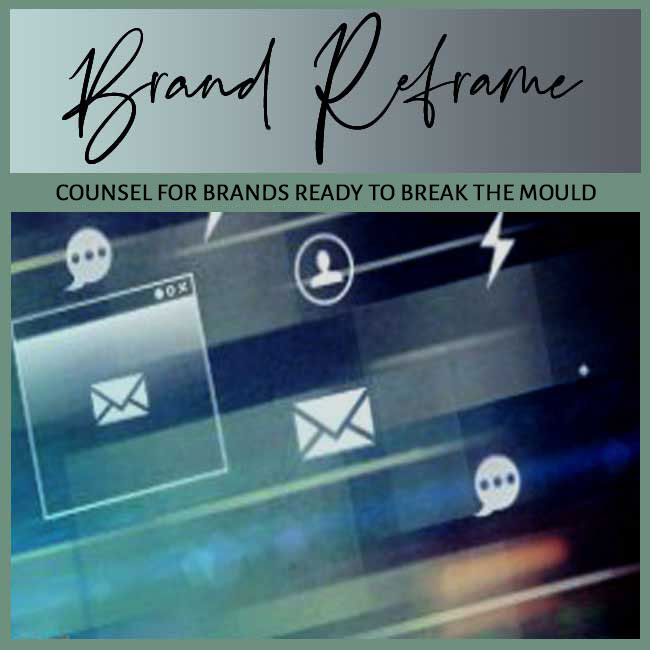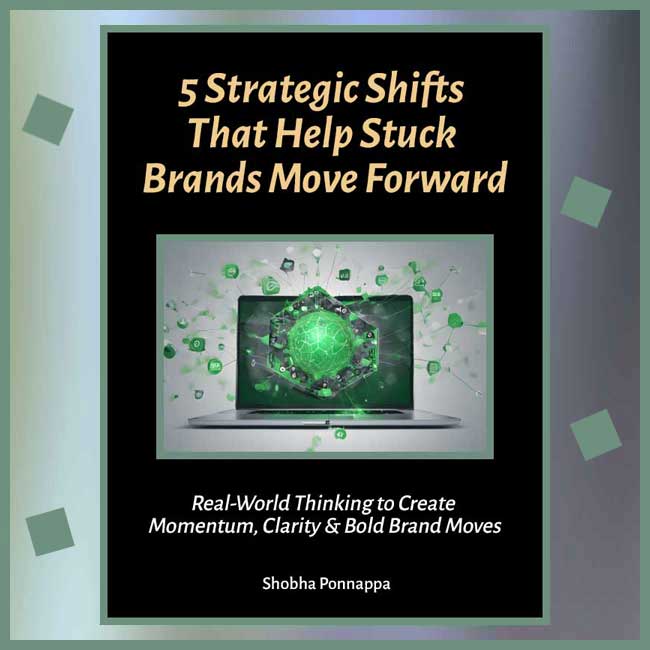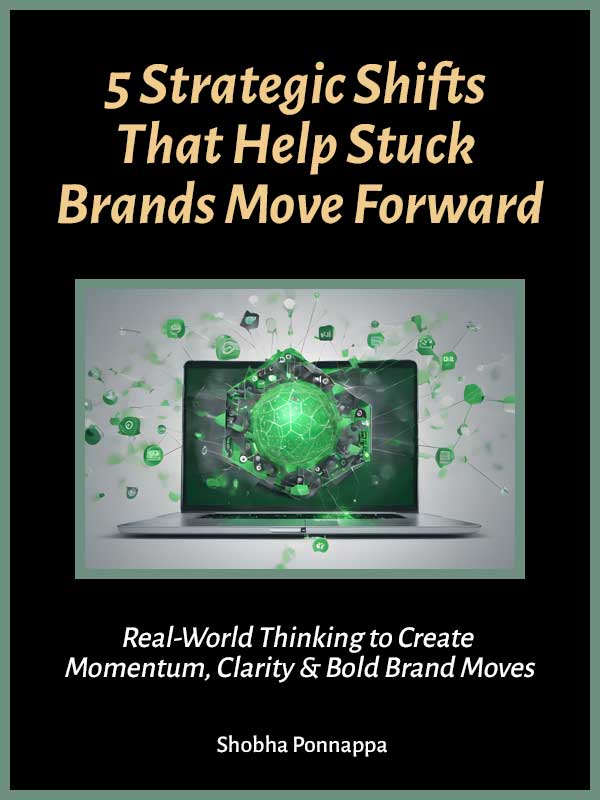
FOCUS: BRAND FOUNDER MISFIT | AUDIENCE: INVESTORS IN SLUGGISH BRANDS
BY: SHOBHA PONNAPPA | BRAND BREAKTHROUGH STRATEGIST | 45 YEARS | 125+ CLIENTS
I helped a GreenTech founder recast investor updates so his sustainability passion became an asset, not liability.
The founder of a GreenTech startup was a passionate advocate for carbon reduction. In her eagerness, she wrote investor updates filled with bold exaggerations such as “We will erase carbon footprints in three years” and “No competitor can survive our breakthroughs.” While these lines conveyed energy, they also sounded reckless and unrealistic in an industry where measurement and regulation are everything.
The challenge intensified when these updates circulated beyond investors. Journalists and activist groups criticised the claims as greenwashing. Instead of building momentum, the brand looked careless, and investors worried about reputational risks. What should have been assets … the company’s innovative technologies … were instead turning into liabilities of overstatement.
I recognised that the founder’s zeal was genuine, but her communication style clashed with investor expectations. In GreenTech, ambition must be balanced with transparency and accountability. Investors do not just fund ideas, they fund credible trajectories. By framing assets as miracle solutions without backing them with data, the founder unintentionally undermined investor confidence.
The insight was that investors wanted both passion and proof. A narrative of bold carbon-cutting targets could only inspire if it came with evidence, milestones, and measurable impact. Without this structure, passion came across as hype, and hype read as liability.
My big breakthrough idea was to create a new narrative model: “Transparency as a Brand Asset.” Instead of updates being passion-driven manifestos, they became structured disclosures that still carried ambition but also provided clarity. The brand would showcase its unique technologies, but pair every claim with metrics, research partnerships, and verifiable pilot results.
This idea turned sustainability from a loose promise into a trust-building framework. The brand’s strength lay not in making the loudest claims but in being the most transparent about what was working, what was pending, and what was projected.
I helped the founder shift updates from emotive overstatement to layered communication. Each update began with a founder’s personal reflection, but was followed by a data-backed section showing key milestones, carbon offsets achieved, and upcoming pilot trials. Updates also clarified industry collaborations, helping to ground the narrative in credibility.
I also redesigned the investor update format into modular sections: Innovation Progress, Environmental Impact, Market Readiness, and Risks. This reframing kept the founder’s authentic voice but structured it into a professional investor-facing lens.
Here are 10 strategic ideas developed (and several executed) to support the new brand direction:
Impact Dashboards: Interactive online dashboards showing real-time carbon reduction data.
Investor Briefing Decks: Branded decks combining storytelling with regulatory-friendly evidence.
Pilot Project Diaries: Monthly blogs tracking the performance of pilot plants with photographs and data.
CEO Video Notes: Short videos where the founder speaks passionately but within a structured Q&A format.
Sustainability Reports: Downloadable annual reports formatted to GRI and ESG standards.
Transparency Tracker Posts: Social media updates sharing not just achievements but also lessons learned.
Investor Webinars: Quarterly live sessions addressing progress and answering stakeholder questions.
Third-Party Validation: Content highlighting certifications and external audit endorsements.
Partnership Spotlights: Features on collaborations with universities and NGOs to strengthen credibility.
Carbon-Cutting Case Studies: Public-facing mini case studies showing measurable outcomes from each innovation.
Investor confidence improved, leading to a 20% increase in follow-on funding commitments.
Media sentiment shifted positively, with sustainability blogs praising the brand’s openness.
The company secured two new pilot partnerships with European regulators citing its transparency.
Internal alignment improved, as employees reported greater pride in the brand’s communication style.
CONFIDENTIALITY CAVEAT: This case study represents a confidential engagement. For privacy, specific brand identifiers, campaign names, and project phases have been withheld. It has been shared with permission while preserving client discretion.
If you’re brand owner or manager seeking stronger brand performance, this Case Study Post I wrote could interest you: “How a Distinctive Coffee Blend Lost Flavour in Generic Headlines.“
And if you’re a solo expert looking to sharpen traction, this Case Study Post I worked on may resonate: “When a Scholar’s Depth Shrunk to a Footnote for Easy Grades.“

"One BIG IDEA can turn brand stagnation into unstoppable movement. Spots are limited each week ... book your breakthrough session now."
Shobha Ponnappa
More Breakthrough Ideas … Case Studies & FAQs … from the Brand Founder Misfit Category
Case Studies
FAQ Insights
I Bring You:
Smart insights, real-world frameworks, and idea-driven clarity – designed to help brands move.
Get my fortnightly Brand Reframe newsletter. Smart insights, distilled thinking, and focused momentum to help your brand lead.

Get my free case studies guide. Practical ideas, bold shifts, and clever transformations to propel your brand forward.

Just fill in the form to join. Get my newsletter and the guide shown alongside, all with several game-changing tips.

Just fill in this form and get this awesome guide via email. Plus … each fortnight you’ll receive my Brand Reframe Newsletter that brings you smart insights, distilled thinking, and focused brand momentum.